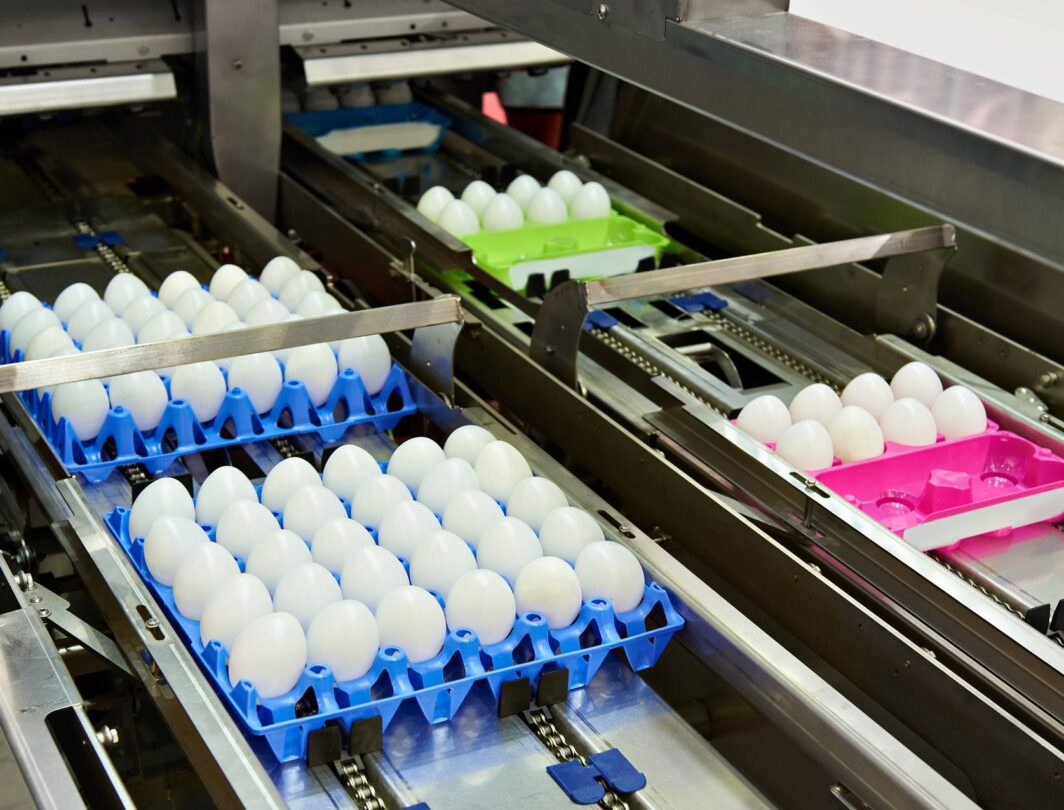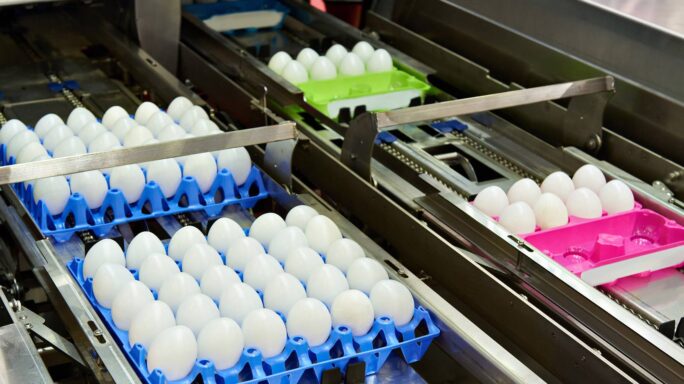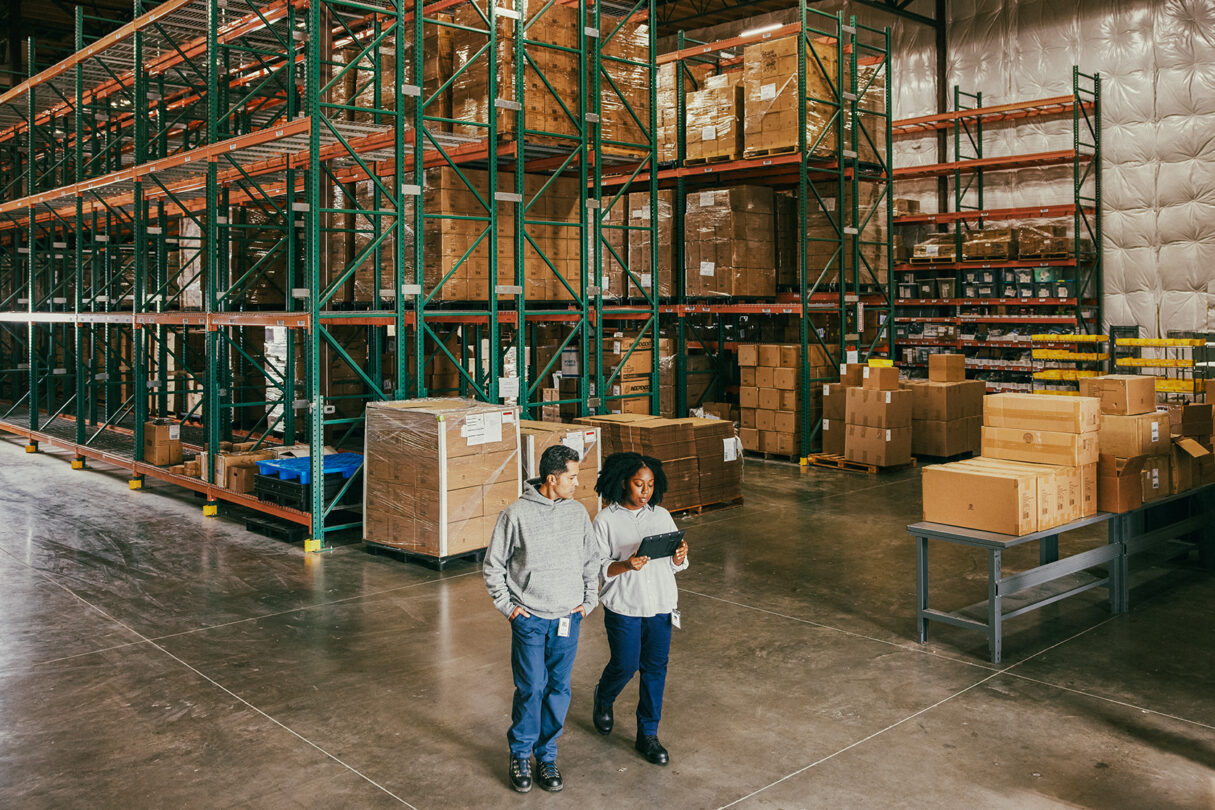Global innovation leaders
How investment in digital transformation can help food & beverage manufacturers avoid ERP chaos

The food & beverage industry is consuming more information than ever before. Being able to get access to data in real time and applying it intelligently in the context of business processes will drastically improve the value delivered to customers and consumers, with a positive impact on market share and share price. This is only possible with the right ERP system.
According to a new InfoBrief from the International Data Corporation (IDC), sponsored by Sage, investment in digital transformation have helped 48% of business leaders in the food and beverage sector achieve a 20% lift in productivity while 36% saw an 18% improvement in cost efficiencies as a result of digital investments.
For those that have already integrated a cloud-based ERP solution into their organization’s processes and operations, the benefits are easily realized – greater transparency, cost savings and the ability to harness AI technology.
Although every business journey is different and moves at its own pace, food and beverage manufacturers that are reluctant to invest in digital transformation can avoid a number of difficulties that can occur as a result of retaining antiquated ERP technology and processes.
The dangers of lacking data accessibility
For food and beverage manufacturers, a lack of data accessibility can easily lead to a drain of operational resources as a result of spending extra time on manual information gathering processes. This can cause three critical business issues:
- Inefficiencies, errors, inflexibility and a lack of agility.
- Inability to trace key metrics across the organization’s value chain (e.g., productivity, inventory, booked vs billed).
- Loss of money related to missing payment discounts, lost invoices and cost saving opportunities that are too complex to document and are part of a larger inefficient process.
A lack of data accessibility can see these micro problems stack up and create systemic risk in the form of wider issues in the organization such as:
- A lack of visibility across the entire value chain — the real-time visibility the organization requires across the enterprise, supply chain and customer network.
- Siloed and disconnected processes: Process, technology, and people must be aligned otherwise it will lead to inefficiencies, errors, inflexibility, a significant lack of transparency, and non-compliance with sustainability regulations.
- Lack of trust from consumers: Inability to provide a rapid response to consumers’ requirements for transparency and sustainability.
If these business issues go unaddressed, this could ultimately cause brand and reputational damage and drop in share prices.
Dealing with consumer demand and expectations
Consumers today are ubiquitously connected, crave individuality and personalization, and are intolerant of complexity and latency. The rapidly changing nature of what consumers want is a food & beverage company’s worst nightmare — but also its greatest opportunity. Successful food & beverage producers must be prepared to forecast and meet these fast-changing demands, including a proliferation of healthier, more personalized, and environmentally conscious choices.
One way that consumer expectations has changed in the last decade is an increased awareness of sustainability and traceability. The end users of food and beverage products expect to have their own view of the supply chain – ‘from farm to Fork’. Savvy organizations have been able to offer this level of visibility to consumers while simultaneously adapting it for marketing and brand initiatives.
Avoiding a business alignment misfire
According to recent IDC research, at least 40% of companies worldwide are stuck in an ERP ‘technical debt’ with heavily customized systems. These complex interfaces decrease IT efficiency and hinder further business alignment.
Manufacturers have had to adopt a multitude of best-of breed applications beyond the pure ERP to augment business alignment in various areas such as manufacturing, supply chain, business intelligence, and B2B. In some cases legacy ERP systems are transactional and do not provide actionable real time data for decision makers, nor are the systems set up for integration with other systems.
Other manufacturing technologies can benefit from the data that ERP handles, such as management execution systems (MES), traceability software, and business intelligent solutions.
The availability of these supporting technologies that enable seamless collaboration and foster decision-making means that an investment in digital transformation now can allow food and beverage manufacturers can benefit from present and future tools such as artificial intelligence and the cloud.
Become a data-driven food and drink manufacturer
Food and drink manufacturing is becoming increasingly complex – and it looks like one way for businesses to not only survive but thrive is to leverage data analytics.
It’s always been the way that good products and operational efficiency were incredibly important but a critical differentiator will be taking advantage of data to hold and to win that edge over the competition.
The key to success? Embracing technology and innovation, adapting capabilities and digitally transforming to become data-driven, smart and connected.
Download the IDC InfoBrief for food and beverage manufacturers today.







